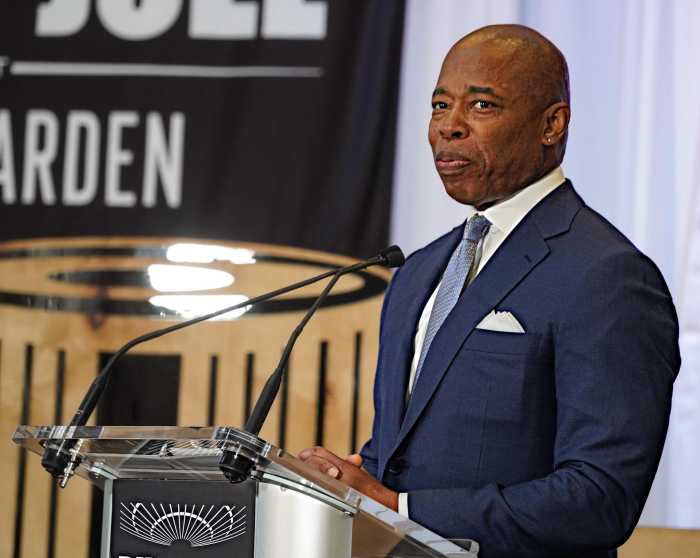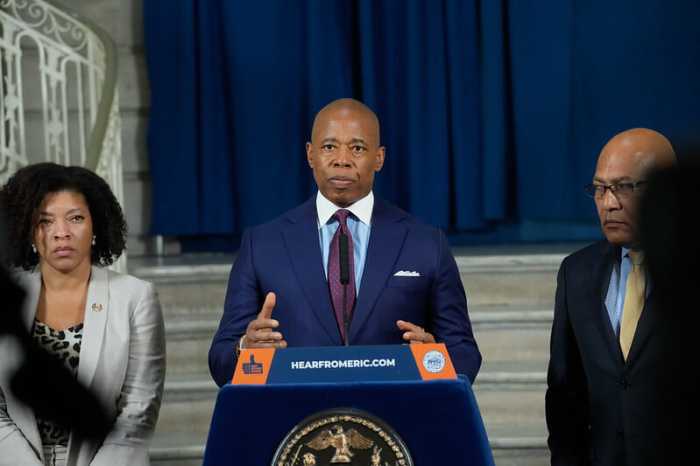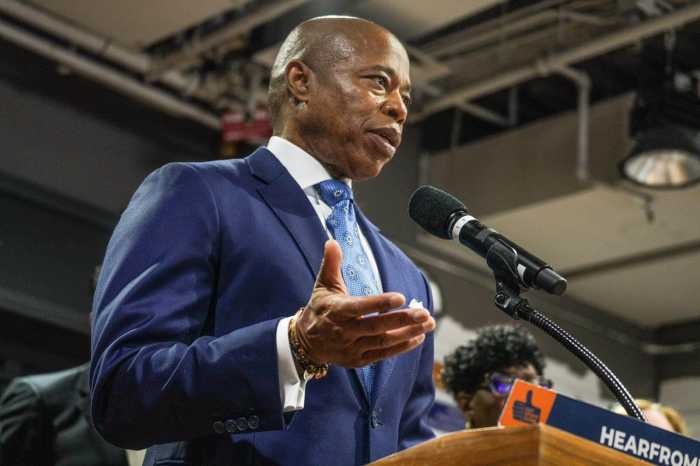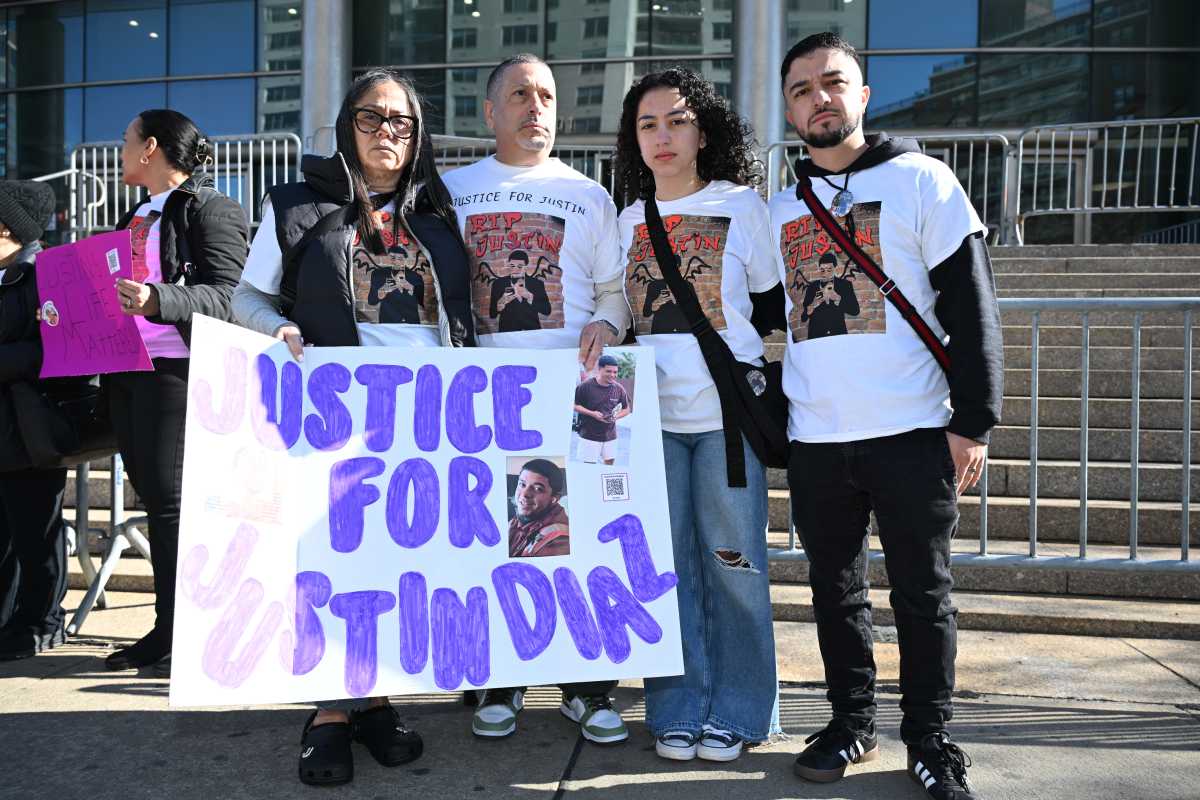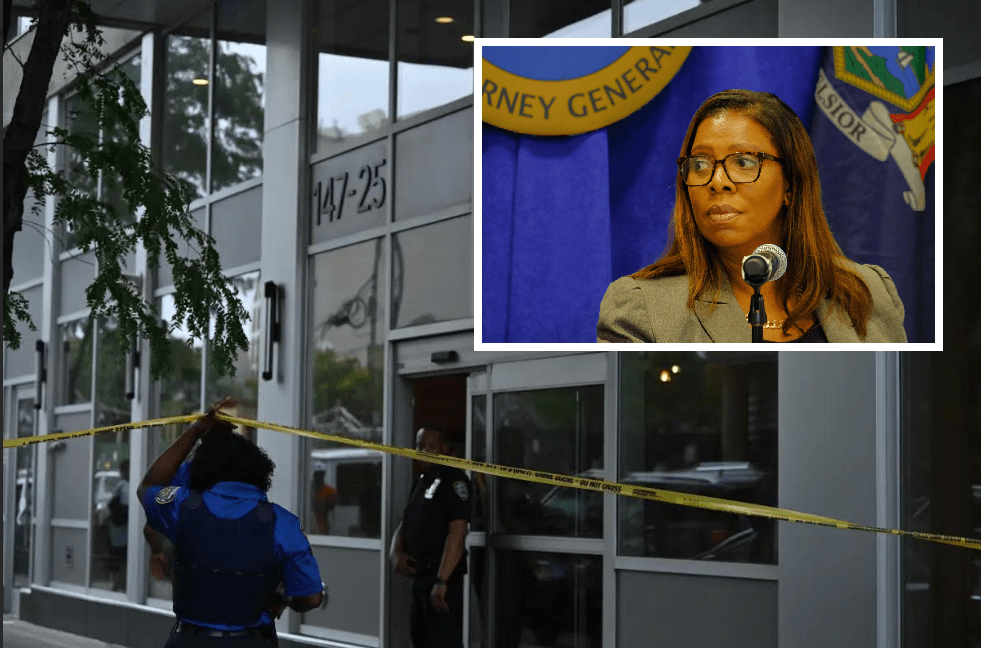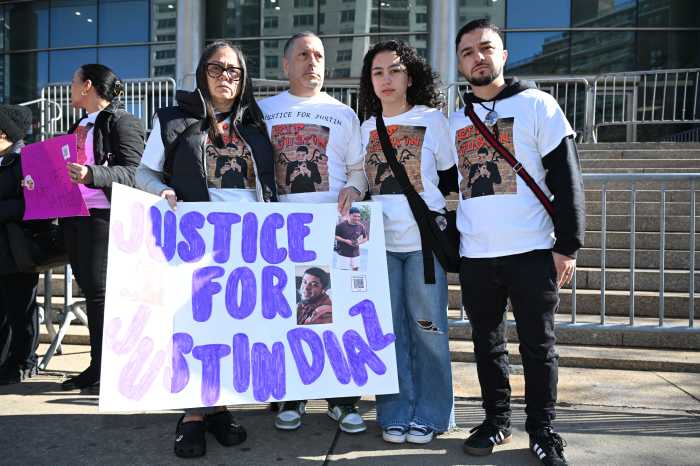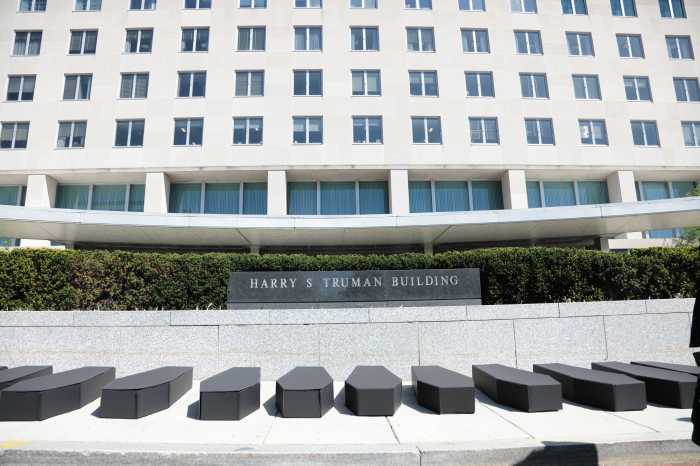A group of New York representatives on Friday introduced a bill in Congress aimed at shortening the length of time asylum applicants must wait to legally work in the United States from 6 months to 1 month.
The legislation — dubbed the “Assisting Seekers in Pursuit of Integration and Rapid Employment (ASPIRE) Act” — was introduced by Congress Members Dan Goldman (D-Manhattan/Brooklyn) and Ritchie Torres (D-Bronx) as well as U.S. Senators Kirsten Gillibrand (D-NY) and Senator Jeff Merkley (D-OR). They argue, in a release, that the current 180-day waiting period puts “undue strain” on migrants by forcing them to depend on government services until such time that they can work legally.
The bill comes as over 104,000 migrants have arrived in New York City since spring 2022 and nearly 60,000 are living in city homeless and emergency shelters.
Goldman, in a statement, noting that shortening the waiting period and getting more migrants into the workforce would also help alleviate labor shortages in New York and elsewhere.
“The migrants I have met in my district simply want to work and build a life here for themselves and their families, as so many of our families have,” Goldman said, in a statement. “And the business community is desperate for more labor. The bureaucratic red-tape that burdens migrants with a statutory 180-day waiting period for work authorization is a serious and unnecessary barrier.”
It was introduced after months of local officials including Mayor Eric Adams and Governor Kathy Hochul calling on President Biden to expedite work authorizations for both new arrivals who have filed asylum claims and waiting for the end of the 180-day waiting period and for those who haven’t yet submitted an application. Those requests have so far gone unanswered by the president.
The measure also comes a day after Hochul made her first public address on the crisis, where she implored Biden not only to let new arrivals to immediately work, but also to reimburse the city and state for costs incurred by the influx and allowing both to utilize federal land for erecting new migrant shelters.
The legislation also includes $2 billion to speed up U.S. Citizenship and Immigration Services’ processing of asylum claims and another $10 billion for the Federal Emergency Management Agency to reimburse localities like New York for the costs of providing for newcomers. That’s money the Adams administration says it desperately needs, as it estimates having to shell out up to $12 billion on the influx by 2025.
“The ASPIRE Act will not only reduce the waiting period for work authorization but will also expedite the processing of asylum applications, bolstering our humanitarian efforts and fixing one of the core problems in our immigration system,” Goldman said.
However, only 10% of the migrants in the city’s care had actually applied for asylum as of this past May, according to state Division of Homeland Security and Emergency Services Commissioner Jackie Bray. That data was gleaned from a survey conducted by the city at the time, Bray said during a media briefing that followed the governor’s address on Thursday.
Bray also noted the majority of migrants being sheltered by the city indicated they wanted to apply for asylum.
When asked about why so few migrants had applied for asylum so far, Bray said it is a very difficult and arduous process.
“So applying for asylum in this country is not a simple process,” she said. “It can take months. It can be arduous to gather the documents that migrants need in order to apply for asylum. And in this country, you really get one shot to put your story down on paper and make your case to the federal government prior to then going to court.”



